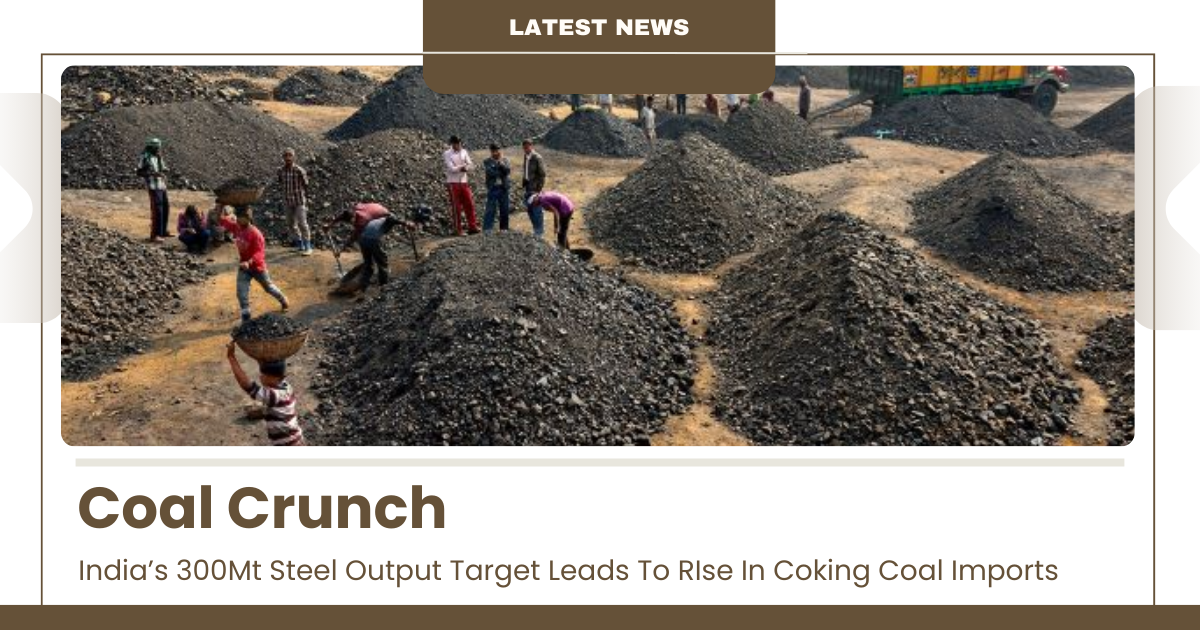India–US Trade Tensions Rise Over Steel and Auto Tariffs NMDC Limited reports a 38% drop in Q4 FY24 consolidated net profit RINL to Raise $23 Million Through Land Sales Amid Crisis

India’s dependence on imported coking coal is set to increase as the country pushes to expand steel production capacity to 300 million tonnes (MT) by 2030, according to a report by EY-Parthenon and the Indian Steel Association.
India currently imports nearly 90% of its coking coal needs. Demand is projected to climb from 87 MT in FY25 to about 135 MT by 2030, driven largely by the blast furnace–basic oxygen furnace (BF-BOF) route, which accounts for most of the country’s steel output.
The government has launched the Atmanirbhar Coal Mission to reduce this dependence, aiming to produce 140 MT of raw coking coal domestically by FY30—with 105 MT from Coal India and 35 MT from private players. Plans also include scaling washed coal capacity to 15 MT.
Policy measures under consideration include 100% FDI in mining, revenue-sharing auction models, and capital subsidies for washeries. However, rising import reliance and price volatility remain major concerns, alongside the industry’s high carbon footprint.
Experts stress that technology shifts—such as electric arc furnaces, hydrogen-based steelmaking, and carbon capture—will be critical to balancing India’s steel growth with its decarbonisation goals.
Also Read : Chennai Inaugurates Longest Steel Flyover Linking T. Nagar and CIT Nagar 13th Steel Bridge Completed for Mumbai-Ahmedabad Bullet Train Corridor